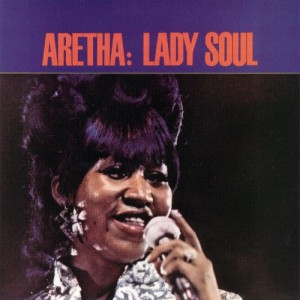 The decline and hospice of Aretha Franklin over the past days still didn’t prepare for the loss of her death Thursday at 76.
The decline and hospice of Aretha Franklin over the past days still didn’t prepare for the loss of her death Thursday at 76.
For decades the undisputed Queen of Soul, the daughter of a Detroit pastor, helped define soul with a voice that exuded joy, pain and power like no one else.
I was lucky to see her several times in a kind of career revival of the late 90s during which she found that being on the road was the simplest way to sustain her career.
In these shows, she’d march on stage with her purse — a holdover from the chitlin circuit days when you were paid before the show and took the cash with you — and breathe new life into anthems we knew so well — often with songs that she had borrowed from others and made her own, Otis Redding’s “Respect” and Don Covay’s “Chain of Fools” among them. Her version of “Say a Little Prayer” or “Spanish Harlem” made one forget the original hits by Dionne Warwick and Ben E. King.
She retained the power of gospel that originally inspired her, infusing it into a “Bridge Over Troubled Water” that often grew into “Spirit in the Dark.” Her piano playing on these was nearly uplifting as her vocals.
She’d surprise people, too, as when she delivered a tremendous last minute version of Puccini’s “Nessun Dorma” after Luciano Pavarotti became ill at the Grammys a year ago.
Her regal presence sanctified Presidential inaugurals from Clinton to Obama. She sang at Martin Luther King’s funeral a half century ago, at the height of her Top 40 success.
And she loved to take on the soaring hits of divas of the day and make them her own, as she did doing Celine Dion’s theme from the “Titanic” “My Heart Will Go On” in such a style that it would have raised that old ship.
That was at one show in Connecticut where she clobbered the audience right away with a quintet of her best loved songs, `Respect,’ `(You Make Me Feel Like A) Natural Woman,” “Chain of Fools,” “I Say a Little Prayer” and “Think.”
It was a show where she also reached back into the 1950s for a couple of songs — Frankie Lyman’s “Why Do Fools Fall in Love” and Sam Cooke’s “You Send Me,’’ underscoring its notes in deeper colors and phrasing things differently just to keep them fresh.
In another show, she swung through the Isley Brothers’ “This Old Heart of Mine” and saluted fellow Detroit soul stars from Martha and the Vandellas (“Nowhere to Run”) to the Supremes (`with `My World is Empty Without You).”
At a third, she included more obscure things from her own catalogue, such as “Sparkle,” from the Curtis Mayfield soundtrack of the same name and would close with a signature song associated with someone else — a ringing “The Greatest Love of All,” that surpassed even that of Whitney Houston, that skinny daughter of one of Franklin’s original backup singers.
Franklin would toy with her audience, asking at one point before “Natural Woman,” “Would you forgive me if I came up here and didn’t sing this song? I wonder.”
But then there was time later to try some new things, as the then new title track of “A Rose is Still a Rose” written by Lauryn Hill.
There was always one song that would drive her shows home, her 1985 “Freeway of Love” that got the crowd moving and her voice at its most wide ranging in its vamping.
Because her her regal standing she insisted that the air conditioning be turned off during a pair of sold out shows at the Foxwoods Casino to best preserve her voice (it paid off).
The worst show also came at Foxwoods in 2001, something called “Kmart Presents Aretha Franklin’s Tribute on Ice.’’ Shot in mid-October as an eventual Christmas TV special, she sang exactly three songs, two of which seemed to be lip synched – “Silent Night,” “Nessun Dorma” and at the end she finally got to sing “Freeway of Love,” unfettered as she was always meant to be.